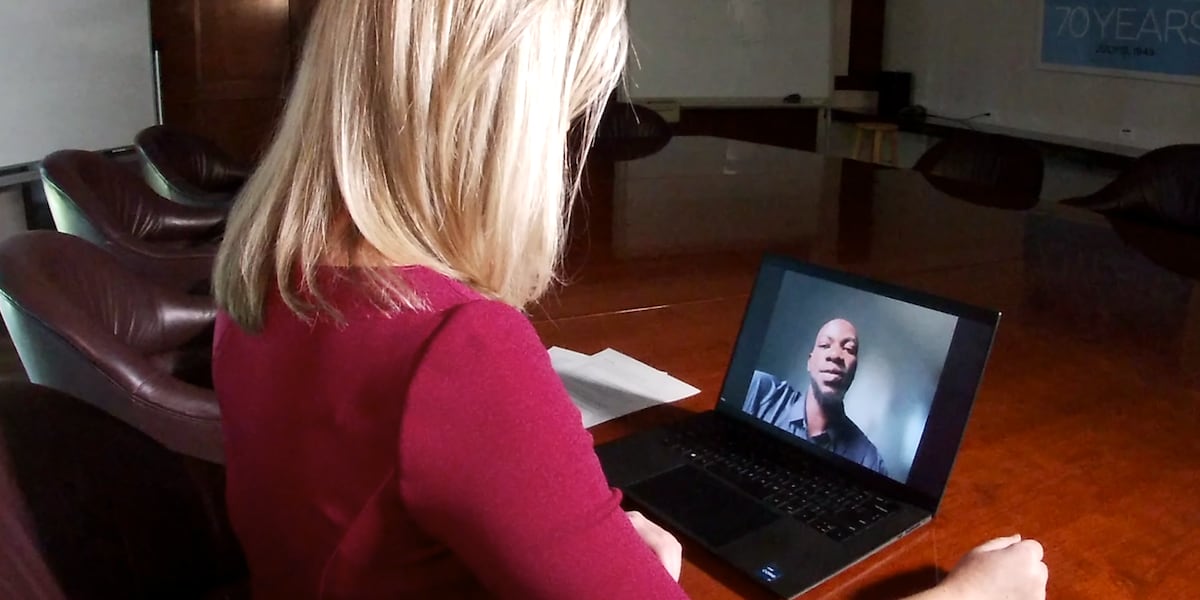CHARLOTTE, N.C. (WBTV) – When meeting someone online, it’s hard to know if the person on the other side of the screen is who they say they are.
“I’d never heard of romance scamming, so I was completely naïve,” Lara Miller, a professional counselor in Lincoln County, told WBTV.
Miller uses LinkedIn to market her counseling services.
“And one day, a gentleman from The Gambia, Africa messaged me and I thought, ‘Oh, he’s reaching out for help,’ because that’s what my profile is all about, business,” Miller said.
Over time it became apparent that the man was looking for more than professional assistance.
“Within a week, he started asking me much more personal questions,” Miller said. “[Like,] ‘Are you married? Do you have kids?’ He would then start complimenting me and flattering me.”
Miller shut down his romantic advances, but later wired him $50 after he told her he couldn’t afford emergency medical care. It was not until she came across a video about scamming that she realized she had become a victim.
Former romance scammer opens up
In 2023, more than 64,000 people reported romance scams to the Federal Trade Commission.
Christopher Maxwell said he spent years scamming women all over the world.
“Scamming is a very common thing here in Nigeria,” Maxwell said.
In one case, he said he scammed a woman out of $15,000.
Maxwell presented himself as an American soldier online, making women fall in love with him and convincing them to send him money.
“I friend them and I start chatting with them and I make them like me,” Maxwell said. “I make sure that I involve myself in their everyday activities.”
He says he targeted middle-aged women, particularly single moms.
“I always let them know that I have a good sense of humor, and I always compliment them, making them think that they’re very good looking,” Maxwell said. “I appreciate them.”
When women requested a phone or video call, he would always have an excuse.
“I tell them that I am in the military, and we don’t have access to our phone, because I am on deployment,” he said. “It takes consistency. It’s something we do over and over and over again, and we just get so good at it. I build the trust so much.”
Eventually one of his victims realized she had been scammed and convinced Maxwell to step away from scamming to become a consultant with Social Catfish – a company that verifies online identities using reverse search technology.
As a consultant, Maxwell shares his story with others to help them identify the warning signs of a scammer.
“When I used to scam, I used to lose a lot of sleep,” Maxwell said.
Now he’s able to help women like Miller before it’s too late.
“I missed a lot that people who are educated on the subjects of scamming would have been like, ‘Oh my gosh, you didn’t see that?‘” Miller said. “Red Flag, red flag, red flag.”
To determine whether you’re speaking with a scammer, Maxwell suggests requesting a video call to confirm the person is who they say they are. He also suggests that you never send money to someone you have never met.
Watch Caroline Hicks’ full story in the video player up above.
After going through this experience, counselor Lara Miller has studied the emotional impact and psychology of being victimized by a scammer. She is now offering discounted counseling to people who find her services through this story.
You can contact Miller via email at contact@theologyofthesoul.org.
Copyright 2025 WBTV. All rights reserved.
Click Here For The Original Source.

